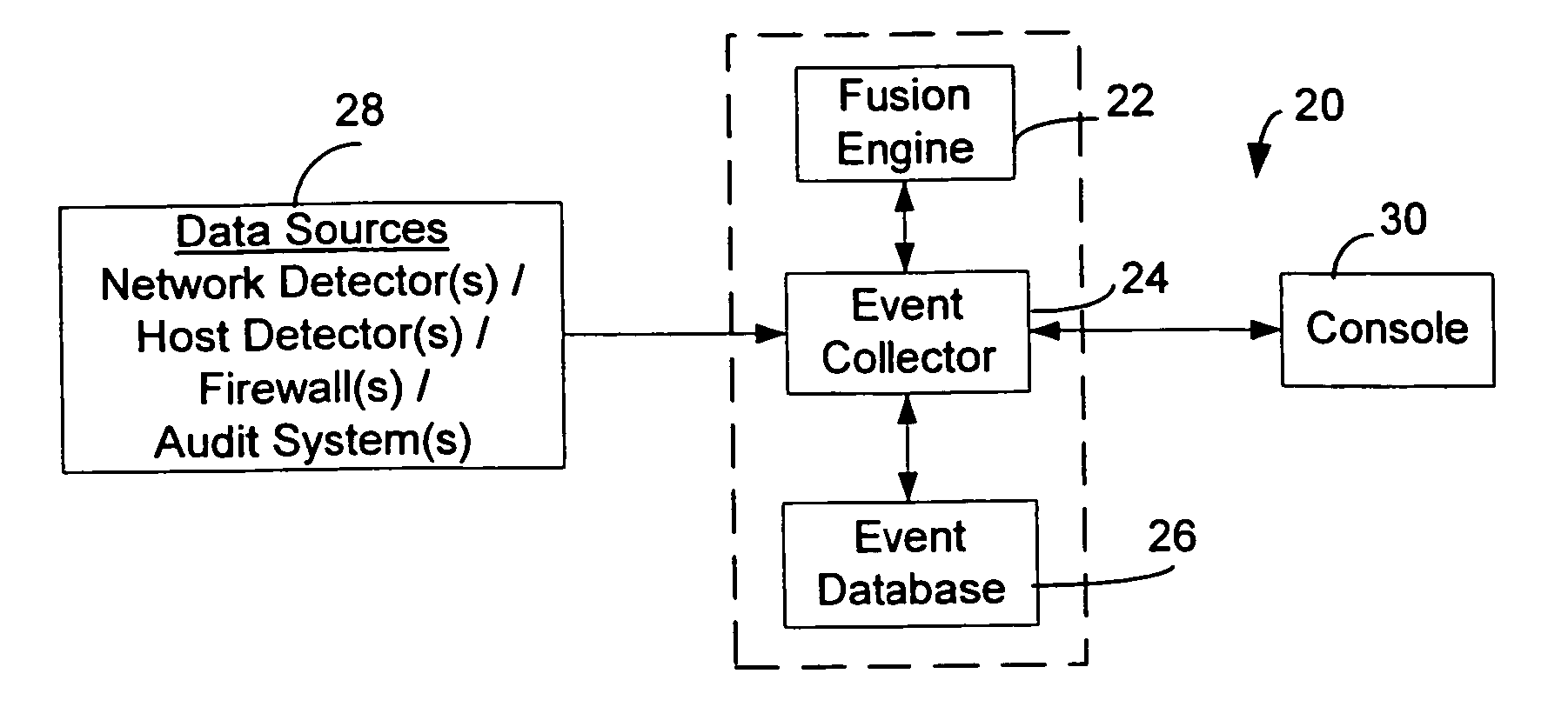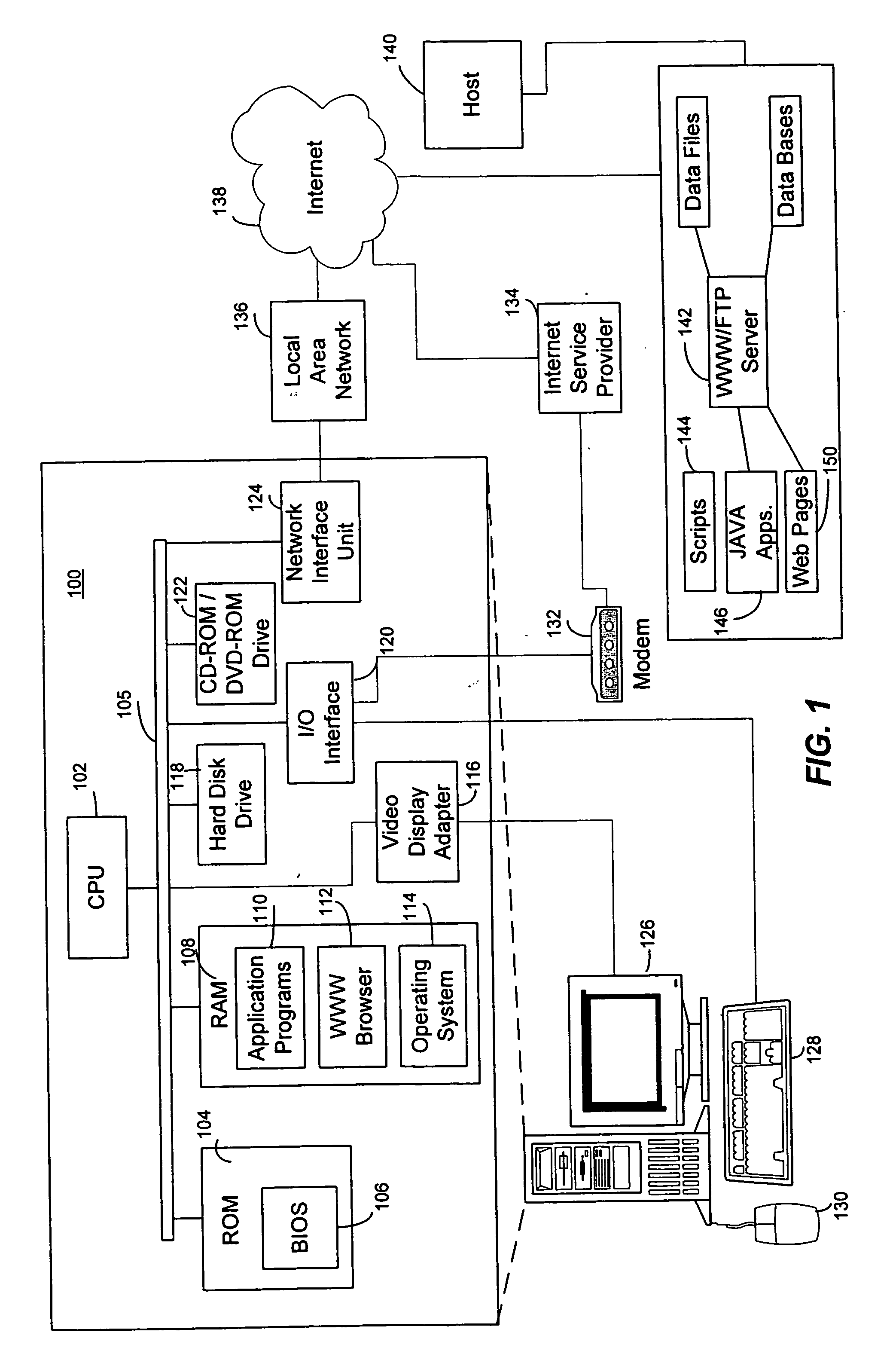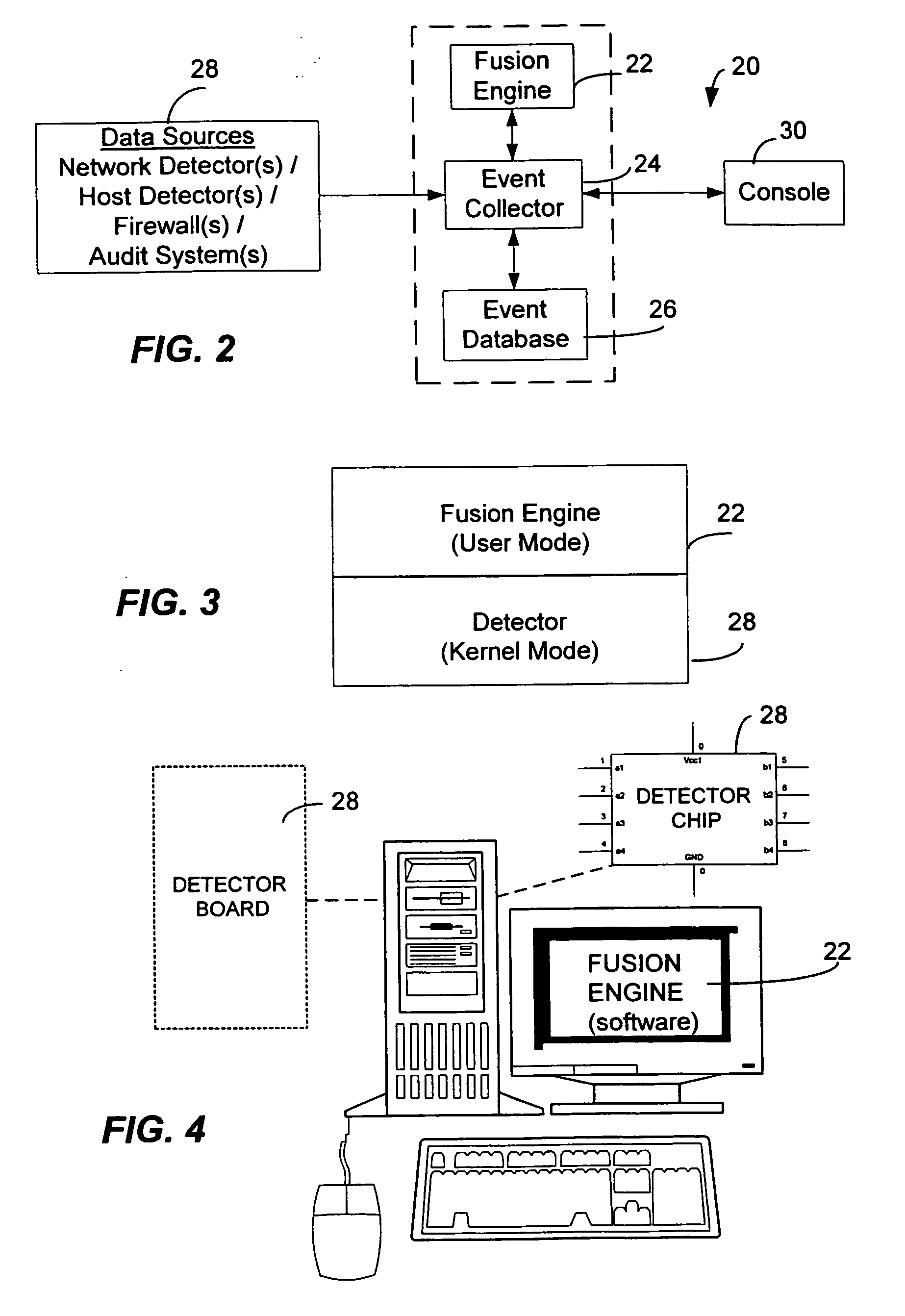Method and system for managing computer security information
a technology for security information and computer systems, applied in the field of methods, can solve problems such as inability to protect data, inability to exchange information freely, and inability to manage high-speed memory resources, and achieve the effect of managing high-speed memory resources very efficiently
- Summary
- Abstract
- Description
- Claims
- Application Information
AI Technical Summary
Benefits of technology
Problems solved by technology
Method used
Image
Examples
Embodiment Construction
[0043] The present invention may be embodied in program modules that run in a distributed computing environment. The present invention can comprise a computer security management system that can log, investigate, respond, and track computer security incidents that can occur in a network computer system. The present invention can comprise a fusion engine which “fuses” or assembles information from multiple data sources and analyzes this information in order to provide an organized, and sometimes ranked, presentation of information to one or more consoles. The fusion engine can classify raw real-time computer events while also ranking the real-time computer events based upon comparisons with one or more databases.
[0044] Illustrative Operating Environment
[0045] Although the illustrative embodiment will be generally described in the context of an program modules running on a personal computer and a server, those skilled in the art will recognize that the present invention may be imple...
PUM
 Login to View More
Login to View More Abstract
Description
Claims
Application Information
 Login to View More
Login to View More - R&D
- Intellectual Property
- Life Sciences
- Materials
- Tech Scout
- Unparalleled Data Quality
- Higher Quality Content
- 60% Fewer Hallucinations
Browse by: Latest US Patents, China's latest patents, Technical Efficacy Thesaurus, Application Domain, Technology Topic, Popular Technical Reports.
© 2025 PatSnap. All rights reserved.Legal|Privacy policy|Modern Slavery Act Transparency Statement|Sitemap|About US| Contact US: help@patsnap.com



